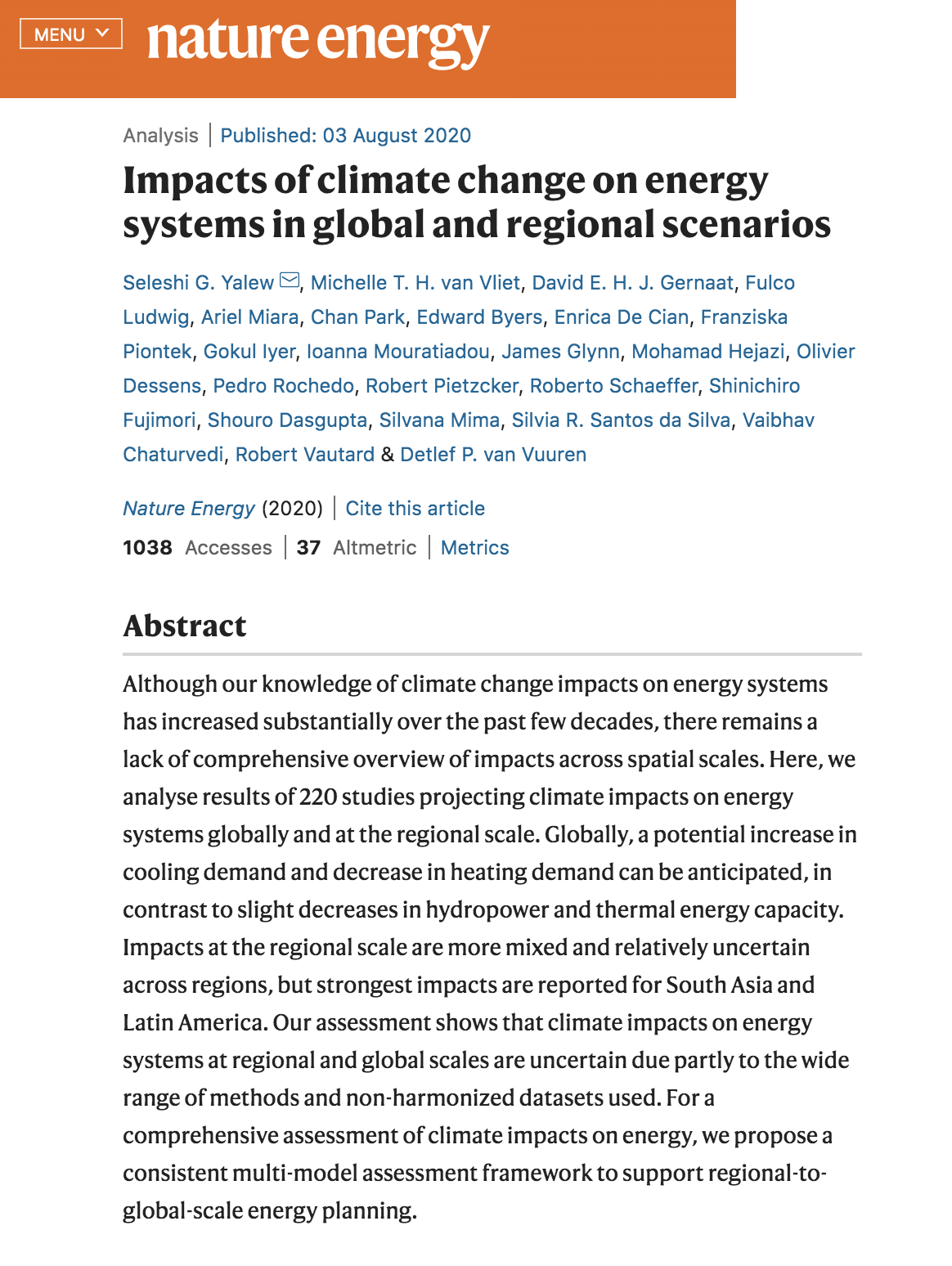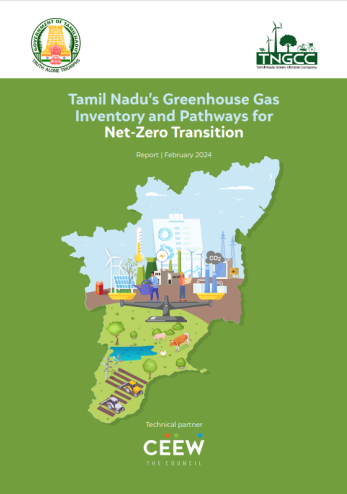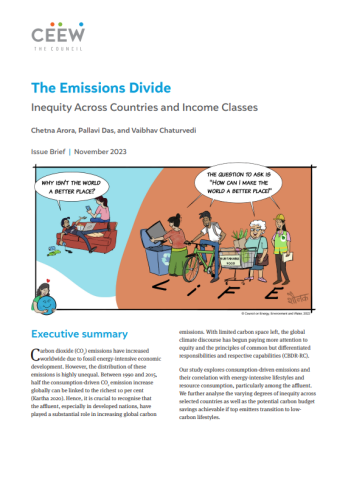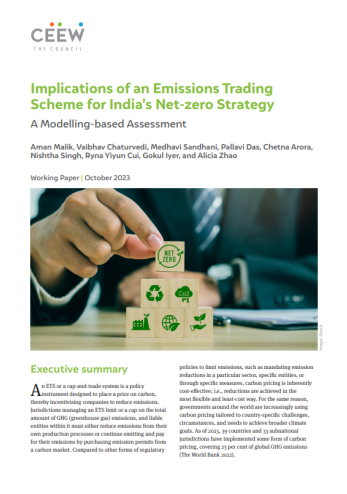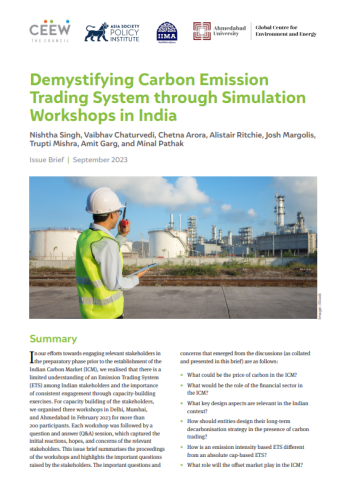Paper
Impacts of Climate Change on Energy Systems in Global and Regional Scenarios
Seleshi G. Yalew, Michelle T. H. van Vliet, David E. H. J. Gernaat, Fulco Ludwig, Ariel Miara, Chan Par, Edward Byers, Enrica De Cian, Franziska Piontek, Gokul Iyer, Ioanna Mouratiadou, James Glynn, Mohamad Hejazi, Olivier Dessens, Pedro Rochedo, Robert Pietzcker, Roberto Schaeffer, Shinichiro Fujimori, Shouro Dasgupta, Silvana Mima, Silvia R. Santos da Silva, Vaibhav Chaturvedi, Robert Vautard, Detlef P. van Vuuren
August 2020 | Low-carbon Economy
Suggested Citation: Yalew, Seleshi G., Michelle T. H. van Vliet, David E. H. J. Gernaat, Fulco Ludwig, Ariel Miara, Chan Par, Edward Byers, Enrica De Cian, Franziska Piontek, Gokul Iye, Ioanna Mouratiadou, James Glynn, Mohamad Hejazi, Olivier Dessens, Pedro Rochedo, Robert Pietzcker, Roberto Schaeffer, Shinichiro Fujimori, Shouro Dasgupta, Silvana Mima, Silvia R. Santos da Silva, Vaibhav Chaturvedi, Robert Vautard and Detlef P. van Vuuren. 2020. “Impacts of Climate Change on Energy Systems in Global and Regional Scenarios.” Nature Energy. https://doi.org/10.1038/s41560-020-0664-z
Overview
This paper identifies knowledge gaps around the impact of climate change on regional and global energy systems by reviewing and synthesising 220 studies on the subject. Climate change impacts are all-pervasive and are increasingly being felt across sectors. Impacts on human communities and biodiversity have been well researched. However, the understanding of climate impacts on energy systems is comparatively less. Only a fraction of the studies published in the last two decades have comprehensively examined the impacts across spatial scales. The paper points out that the use of diverse methodologies and non-harmonised data sets across different studies limits the scope of assessing climate change impacts on the energy sector. Further, the paper recommends a consistent multi-model assessment framework to support regional-to-global-scale energy planning.
Key Highlights
- There are significant differences in results across various studies about climate change impacts on the energy sector, leading to uncertain and divergent modelling outcomes.
- Globally, a potential increase in cooling demand and decrease in heating demand can be anticipated.
- Large regional differences have been observed, most likely due to geographic differences in the manifestation of future climate change, or methodological differences between studies.
- Slight decreases in hydropower and thermal energy capacity can be expected.
- Hydropower is the only renewable energy source for which the current literature provides a comprehensive global picture.
- Most studies on hydropower show both positive and negative climate change impacts in different regions, with notable seasonal variability and uncertainty.
- The studies say that hydropower plants in Latin America, Europe, and the Middle East might need additional investments to mitigate climate change impacts. Meanwhile, countries such as Bhutan, Canada, and Norway would require less investment.
- Climate change impacts on wind power potential are likely to be mixed on a regional scale. Both increases and decreases in wind power potential across Europe were reported. Some studies found low probability of wind power changes for South Africa, while others reported favorable future wind power conditions for United States and Brazil.
- Expected change in the frequency and strength of climate extremes and variable factors such as heatwaves, droughts, cold waves, storms, wildfires, and flooding could affect energy costs.
Key Recommendations
- Adopt an inter-sectoral approach to study the energy sector by modelling energy sector impacts at the same spatial scale as other impacts.
- The energy sector modellers should conduct systematic model inter-comparisons and multi-model assessments on climate impacts by using consistent inputs and methods across all scales and look into the relevant uncertainties.
- Use multi-model inter-comparison experiments on climate extremes that can create a more comprehensive picture of climate impacts on energy systems.
- Use a global integrated scenario framework, the ‘ISIpedia-energy protocol’ approach to assess climate change impact on renewable energy sources, including hydropower, solar, wind, and bioenergy, as well as energy systems as a whole.
For a comprehensive assessment of climate impacts on energy, a consistent multi-model assessment framework to support regional-to-global-scale energy planning would be instrumental.




